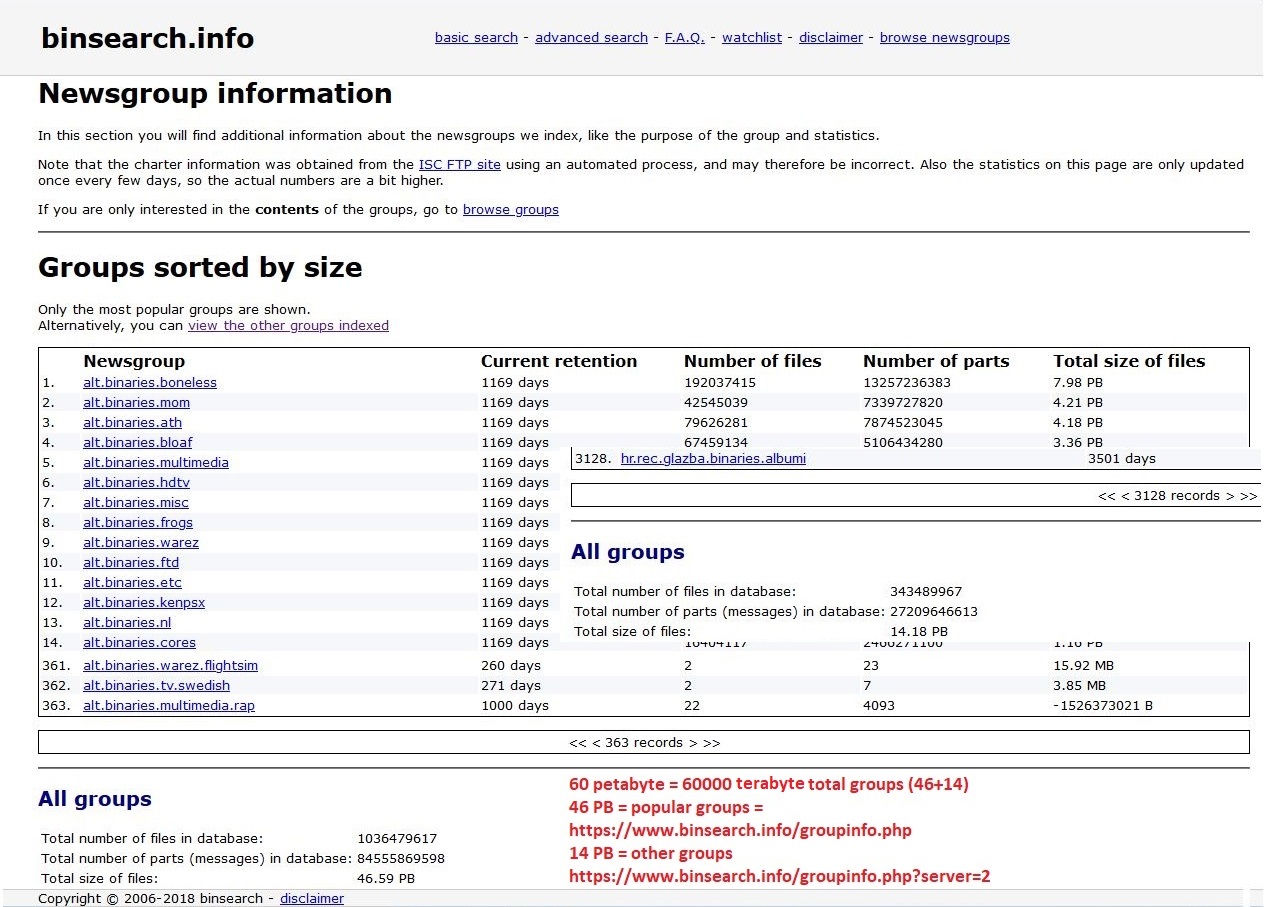|
KISS (algorithm)
KISS ( Keep it Simple Stupid) is a family of pseudorandom number generators introduced by George Marsaglia. Starting from 1998 Marsaglia posted on various newsgroups including sci.math, comp.lang.c, comp.lang.fortran and sci.stat.math several versions of the generators. All KISS generators combine three or four independent random number generators with a view to improving the quality of randomness. KISS generators produce 32-bit or 64-bit random integers, from which random floating-point numbers can be constructed if desired. The original 1993 generator is based on the combination of a linear congruential generator and of two linear feedback shift-register generators. It has a period 295, good speed and good statistical properties; however, it fails the LinearComplexity test in the Crush and BigCrush tests of the TestU01 suite. A newer version from 1999 is based on a linear congruential generator, a 3-shift linear feedback shift-register and two multiply-with-carry generator ... [...More Info...] [...Related Items...] OR: [Wikipedia] [Google] [Baidu] [Amazon] |
KISS Principle
KISS, an acronym for "Keep it simple, stupid!", is a design principle first noted by the U.S. Navy in 1960. First seen partly in American English by at least 1938, KISS implies that simplicity should be a design goal. The phrase has been associated with aircraft engineer Kelly Johnson (engineer), Kelly Johnson. The term "KISS principle" was in popular use by 1970. Variations on the phrase (usually as some euphemism for the more churlish "stupid") include "keep it super simple", "keep it simple, silly", "keep it short and simple", "keep it short and sweet", "keep it simple and straightforward", "keep it small and simple", "keep it simple, soldier", "keep it simple, sailor", "keep it simple, sweetie", "keep it stupidly simple", or "keep it sweet and simple". Origin The acronym was reportedly coined by Kelly Johnson (engineer), Kelly Johnson, lead engineer at the Lockheed Martin, Lockheed Skunk Works (creators of the Lockheed U-2 and SR-71 Blackbird spy planes, among many others). How ... [...More Info...] [...Related Items...] OR: [Wikipedia] [Google] [Baidu] [Amazon] |
Pseudorandom Number Generator
A pseudorandom number generator (PRNG), also known as a deterministic random bit generator (DRBG), is an algorithm for generating a sequence of numbers whose properties approximate the properties of sequences of random number generation, random numbers. The PRNG-generated sequence is not truly random, because it is completely determined by an initial value, called the PRNG's ''random seed, seed'' (which may include truly random values). Although sequences that are closer to truly random can be generated using hardware random number generators, ''pseudorandom number generators'' are important in practice for their speed in number generation and their reproducibility. PRNGs are central in applications such as simulations (e.g. for the Monte Carlo method), electronic games (e.g. for procedural generation), and cryptography. Cryptographic applications require the output not to be predictable from earlier outputs, and more cryptographically-secure pseudorandom number generator, elabora ... [...More Info...] [...Related Items...] OR: [Wikipedia] [Google] [Baidu] [Amazon] |
George Marsaglia
George Marsaglia (March 12, 1924 – February 15, 2011) was an American mathematician and computer scientist. He is best known for creating the diehard tests, a suite of software for measuring statistical randomness. Research on random numbers George Marsaglia established the lattice structure of linear congruential generators in the paper "Random numbers fall mainly in the planes", later termed Marsaglia's theorem. This phenomenon means that ''n''-tuples with coordinates obtained from consecutive use of the generator will lie on a small number of equally spaced hyperplanes in ''n''-dimensional space. He also developed the diehard tests, a series of tests to determine whether or not a sequence of numbers have the statistical properties that could be expected from a random sequence. In 1995 he published a CD-ROM of random numbers, which included the diehard tests. His diehard paper came with the quotation "Nothing is random, only uncertain" attributed to ''Gail Gasram'', ... [...More Info...] [...Related Items...] OR: [Wikipedia] [Google] [Baidu] [Amazon] |
Usenet Newsgroup
A Usenet newsgroup is a repository usually within the Usenet system for messages posted from users in different locations using the Internet. They are not only discussion groups or conversations, but also a repository to publish articles, start developing tasks like creating Linux, sustain mailing lists and file uploading. That’s thank to the protocol that poses no article size limit, but are to the providers to decide. In the late 1980s, Usenet articles were often limited by the providers to 60,000 characters, but in time, Usenet groups have been split into two types: ''text'' for mainly discussions, conversations, articles, limited by most providers to about 32,000 characters, and ''binary'' for file transfer, with providers setting limits ranging from less than 1 MB to about 4 MB. Newsgroups are technically distinct from, but functionally similar to, discussion forums on the World Wide Web. Newsreader software is used to read the content of newsgroups. Before the adoption ... [...More Info...] [...Related Items...] OR: [Wikipedia] [Google] [Baidu] [Amazon] |
Comp
Comp, COMP or Comps may refer to: Places In England: * Comp, Kent In France: * Comps, Drôme * Comps, Gard * Comps, Gironde * Comps-la-Grand-Ville * Comps-sur-Artuby Music *Accompaniment, especially in jazz ** Comping (jazz) *Compilation album *Comping (post-production), an edited recording from the best parts of multiple takes *Music composition Business and finance * Comps (casino), complimentary items or services given by casinos to patrons to encourage gambling * Comparable company analysis * Comparables, in real estate, in determining a property's market value *Complimentary, as in free of charge, such as a restaurant not charging for an unsatisfactory meal *Comprehensive layout, in advertising and marketing, a proposed design presented to a client *Same-store sales, in evaluating retail outlets' revenues * Workers' compensation, compensation for work-related injuries and diseases Computing and technology * Comp (command), a command in some computer operating sy ... [...More Info...] [...Related Items...] OR: [Wikipedia] [Google] [Baidu] [Amazon] |
Linear Congruential Generator
A linear congruential generator (LCG) is an algorithm that yields a sequence of pseudo-randomized numbers calculated with a discontinuous piecewise linear equation. The method represents one of the oldest and best-known pseudorandom number generator algorithms. The theory behind them is relatively easy to understand, and they are easily implemented and fast, especially on computer hardware which can provide modular arithmetic by storage-bit truncation. The generator is defined by the recurrence relation: :X_ = \left( a X_n + c \right)\bmod m where X is the sequence of pseudo-random values, and : m,\, 0 |
Linear-feedback Shift Register
In computing, a linear-feedback shift register (LFSR) is a shift register whose input bit is a Linear#Boolean functions, linear function of its previous state. The most commonly used linear function of single bits is exclusive-or (XOR). Thus, an LFSR is most often a shift register whose input bit is driven by the XOR of some bits of the overall shift register value. The initial value of the LFSR is called the seed, and because the operation of the register is deterministic, the stream of values produced by the register is completely determined by its current (or previous) state. Likewise, because the register has a finite number of possible states, it must eventually enter a repeating cycle. However, an LFSR with a Primitive polynomial (field theory), well-chosen feedback function can produce a sequence of bits that appears random and has a Maximal length sequence, very long cycle. Applications of LFSRs include generating Pseudorandomness, pseudo-random numbers, Pseudorandom n ... [...More Info...] [...Related Items...] OR: [Wikipedia] [Google] [Baidu] [Amazon] |
TestU01
TestU01 is a software library, implemented in the ANSI C language, that offers a collection of utilities for the empirical randomness testing of random number generators (RNGs).The TestU01 web site The library was first introduced in 2007 by Pierre L’Ecuyer and Richard Simard of the .Pierre L’Ecuyer & Richard Simard (2007), TestU01: A Software Library in ANSI C for Empirical Testing of Random Number Generators , '' |
Xorshift
Xorshift random number generators, also called shift-register generators, are a class of pseudorandom number generators that were invented by George Marsaglia. They are a subset of linear-feedback shift registers (LFSRs) which allow a particularly efficient implementation in software without the excessive use of sparse polynomials. They generate the next number in their sequence by repeatedly taking the exclusive or of a number with a bit-shifted version of itself. This makes execution extremely efficient on modern computer architectures, but it does not benefit efficiency in a hardware implementation. Like all LFSRs, the parameters have to be chosen very carefully in order to achieve a long period. For execution in software, xorshift generators are among the fastest PRNGs, requiring very small code and state. However, they do not pass every statistical test without further refinement. This weakness is amended by combining them with a non-linear function, as described in the ori ... [...More Info...] [...Related Items...] OR: [Wikipedia] [Google] [Baidu] [Amazon] |
Multiply-with-carry
In computer science, multiply-with-carry (MWC) is a method invented by George Marsaglia for generating sequences of random integers based on an initial set from two to many thousands of randomly chosen seed values. The main advantages of the MWC method are that it invokes simple computer integer arithmetic and leads to very fast generation of sequences of random numbers with immense periods, ranging from around 2^ to 2^. As with all pseudorandom number generators, the resulting sequences are functions of the supplied seed values. General theory An MWC generator is a special form of Lehmer random number generator x_n = bx_ \bmod p which allows efficient implementation of a prime modulus p much larger than the machine word size. Normal Lehmer generator implementations choose a modulus close to the machine word size. An MWC generator instead maintains its state in base b, so multiplying by b is done implicitly by shifting one word. The base b is typically chosen to equal the compu ... [...More Info...] [...Related Items...] OR: [Wikipedia] [Google] [Baidu] [Amazon] |


